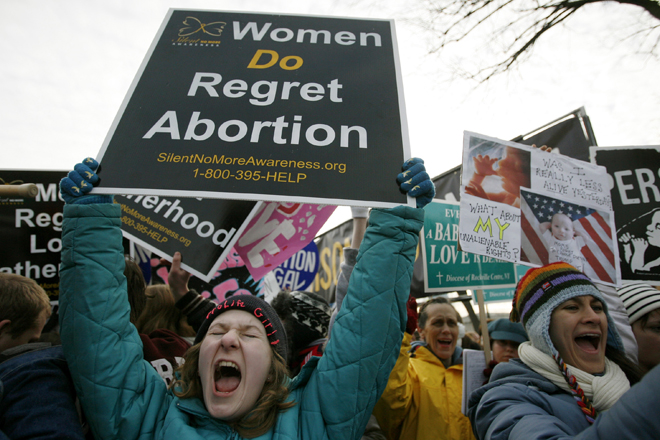In 37 states, pregnant minors are required either to notify or get consent from a parent or legal guardian in order to obtain an abortion. In theory, this might sound reasonable, as these young women are not yet legal adults and, in all other aspects of their lives, are still under their parents’ purview. But in practice, parental notification laws can pose a grave threat to pregnant minors’ family relationships, bodily autonomy and, too often, their personal safety. That’s why judicial bypass exists.
As the name would suggest, the judicial bypass process allows girls to bypass parental notification laws and petition a judge directly for permission to have an abortion, often with special confidentiality measures in place to protect minors’ privacy. The critical loophole is meant to counter the possibility of parents’ maintaining exclusive control over their daughters’ right to have an abortion.
But, as a Mother Jones investigation has uncovered, antiabortion lawmakers have placed increased restrictions on the bypass process in several states, placing many pregnant minors in hopeless situations. According to Mother Jones’ Molly Redden, restrictions include raised standards of evidence of a minor’s need for an abortion, limitations on counties where young women can petition and on who can help teens seek judicial bypasses, as well as other more challenging hurdles:
In April, Alabama passed a law formally recognizing the right of judges to appoint lawyers to represent fetuses in the proceedings. … The new law also requires district attorneys to cross-examine minors seeking a bypass — making the hearings, which are supposed to be fact-finding exercises, more like criminal trials. The judge may adjourn a hearing for as long as he sees fit, and he may disclose the minor’s identity to any person he determines “needs to know.” If a minor’s parents become aware of the petition, which the Supreme Court intended to be confidential, they are entitled to participate in the hearing and be represented by a lawyer.
But even without increased restrictions, the outcomes of judicial bypass hearings are often left entirely up to the whims of judges; control over a minor’s reproductive decisions simply moves from the hands of her parents into the hands of jurists who can dismiss petitions for “arbitrary, absurd, or personal reasons,” according to Redden:
In 2008, Florida Judge Raul Palomino Jr. urged a 17-year-old to think of how distressed her Catholic parents would be if they discovered her secret abortion. In a 2006 Florida case, a girl testified she wasn’t financially or emotionally equipped to raise a child — a claim, the judge ruled, that proved she wasn’t mature enough to choose abortion. Three judges denied petitions because becoming pregnant by accident indicated a young woman was too immature to choose abortion.
Getting a bypass petition granted often requires minors to display that they are “mature” enough to make the decision to have an abortion, a highly subjective standard that gives judges more power over pregnancy outcomes. It also opens teenagers up to public shaming in court, where their choices, circumstances and desires must be revealed to a public official — who also happens to be a complete stranger. For many young women with traumatic histories — whose parents have abused them or abandoned them, whose guardians are in prison or have died — these cases often fall to judges who fail to grasp the gravity of the situation, or the true need for an abortion.
Kiera, a young woman who was granted a judicial bypass, told Redden that the judge at her hearing assured her that her mother “would understand.” In reality, Kiera’s mother was violent, unpredictable and likely to kick her daughter out of the house permanently. “I had to walk this total stranger through my life,” she said. “I had to open up one of the most embarrassing parts of my life.”
And if a young woman walked a judge through her life, and it was full of more messy details — a physically abusive parent, for instance, who had beaten the daughter brutally before — what then? “Should she ask [her abusive father] if she can have an abortion?” Kiera asked. “Or should she go in front of a court that says ‘I’m sure your parents would understand?'” Neither option would feel safe — and neither would provide her much dignity.

